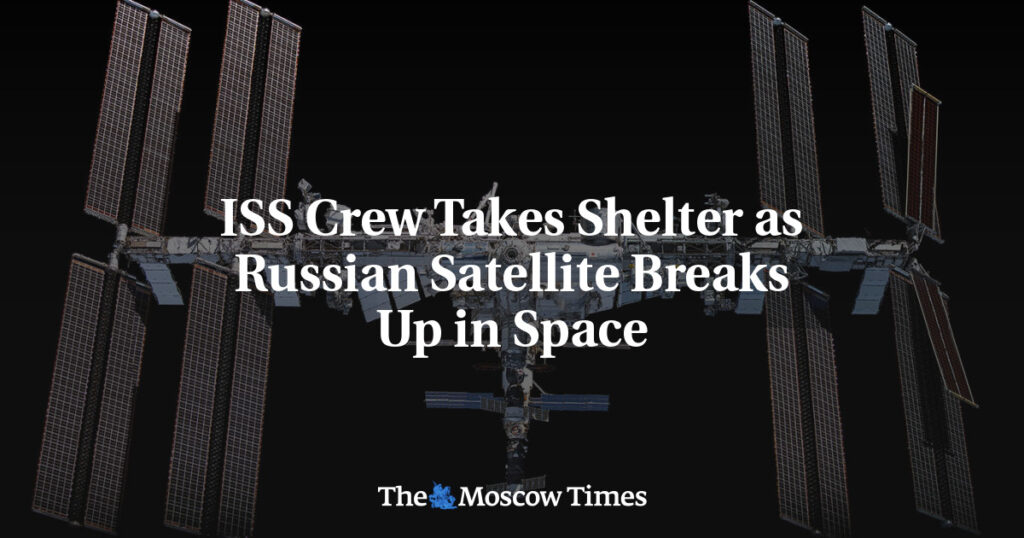In a recent incident, astronauts aboard the International Space Station (ISS) were instructed to seek immediate shelter following the fragmentation of a Russian satellite in Earth’s orbit. This sudden event, which occurred early Thursday, prompted swift precautionary measures by NASA.
On Thursday, NASA confirmed that the ISS crew members were directed to take refuge in their respective spacecraft after learning of the satellite disintegration at an altitude proximate to the ISS’s orbital path. According to a statement on NASA’s ISS Twitter account, often referred to as X, "NASA instructed crews aboard the space station to shelter in their respective spacecraft as a standard precautionary measure after it was informed of a satellite break-up at an altitude near the station’s earlier Wednesday." The debris posed a potential risk, and thus, it was imperative to follow established safety protocols.
Mission Control diligently monitored the debris trajectory. Approximately one hour after taking shelter, the astronauts received the all-clear signal, allowing them to resume normal operations. This precautionary lockdown was enforced just after 4:00 a.m. Moscow time, underscoring the urgency and seriousness of the debris threat.
Further details were provided by U.S. Space Command, which tracked over 100 pieces of debris resulting from the fragmentation of the Russian Resurs P1 Earth observation satellite. This satellite, which had been non-functional since 2021, disintegrated around 3:00 a.m. Moscow time. The incident was initially reported by Reuters, highlighting the immediate response and tracking efforts implemented by space authorities.
Complementing the data provided by U.S. Space Command, LeoLabs—a U.S. company specializing in space tracking—confirmed the release of multiple fragments from the Resurs P1 satellite. According to LeoLabs, the disintegration took place between 4:05 p.m. Wednesday and 3:51 a.m. Thursday, Moscow time.
Despite the extensive debris field, U.S. Space Command assured there was no immediate threat to the ISS. Nevertheless, the Russian space agency, Roscosmos, has remained silent on the satellite’s break-up. The 6,000-kilogram satellite, which was launched in 2013, was decommissioned due to equipment failure in December 2021, as per its manufacturer, the Progress Rocket Space Center.
In an unrelated story on space endeavors, it’s noteworthy that Russian cosmonaut Oleg Kononenko has extended his record, spending over 1,000 cumulative days in space. This demonstrates significant achievements in space exploration amidst unforeseen challenges like satellite fragmentations.
As a brief aside, providing accurate, unbiased, and timely reporting—particularly on events that affect global space operations and safety—is crucial. The Moscow Times, an independent news entity for over three decades, emphasizes the importance of maintaining journalistic integrity despite facing significant pressures, including being labeled a "foreign agent" by the Russian government. Your support for preserving independent journalism is invaluable. If you can contribute, even a modest amount like $2 per month, it greatly aids in sustaining our critical mission of delivering verified news.
For further information, you may visit the sources linked throughout this article.
Source: The Moscow Times
